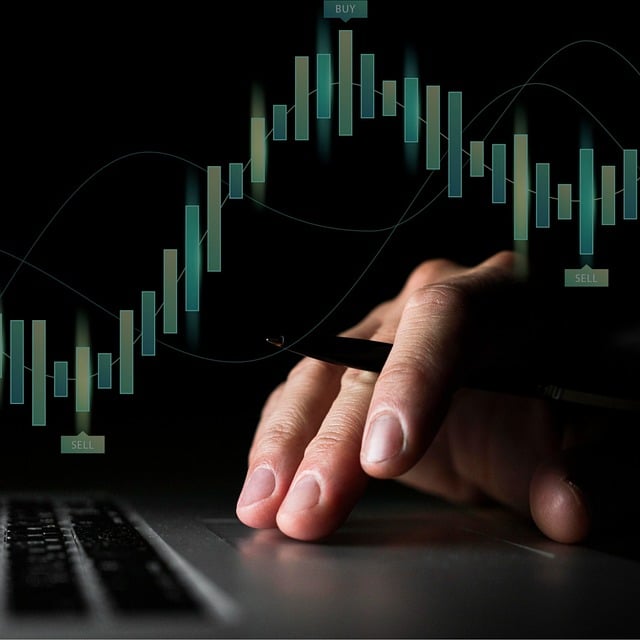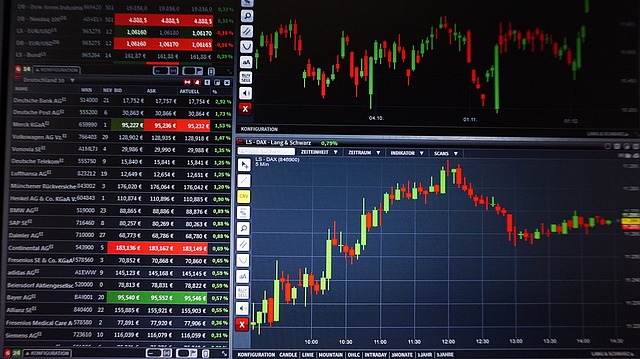The Rise of AI Trading Software: Revolutionizing the Financial Landscape
In the ever-evolving world of finance, artificial intelligence (AI) has begun to take center stage, especially in the realm of trading. This article explores the transformative impact of AI trading software on the financial markets, examining its functionalities, advantages, challenges, and the future of automated trading. As someone who has observed both the potential and pitfalls of technology in finance, I feel compelled to discuss not just the mechanics of AI trading software but also the philosophical implications it brings to the world of investing.

Understanding AI Trading Software
AI trading software leverages algorithms and machine learning technologies to analyze market data, identify patterns, and execute trades with minimal human intervention. This can range from simple rule-based systems that follow predetermined strategies to complex algorithms that adapt to changing market conditions in real-time. The primary goal is to maximize profits by making informed trading decisions faster than any human trader could.
How Does AI Trading Software Work?
The operation of AI trading software can be broken down into several core components:
- Data Collection: AI systems harness vast amounts of financial data, including historical prices, market sentiment, and macroeconomic factors. This data is often collected from multiple sources, including news articles, social media, and economic reports.
- Data Analysis: Once the data is gathered, advanced analytics, including statistical methods and machine learning algorithms, are applied to discern patterns and predict future price movements.
- Trading Strategy Formulation: Based on the analyses conducted, the software can develop intricate trading strategies to decide when to enter or exit the market. These strategies can range from scalping (short-term trading) to long-term investment strategies.
- Execution: After a strategy is formulated, the software automatically executes trades on behalf of the user, often within milliseconds. This speed is crucial in today’s fast-paced markets.
- Performance Monitoring: AI trading systems continually assess the effectiveness of their strategies by monitoring ongoing performance, allowing them to recalibrate and adapt over time.
The Role of Machine Learning in Trading
Machine learning, a subset of AI, plays a significant role in enhancing the capabilities of trading software. By employing techniques such as supervised learning, unsupervised learning, and reinforcement learning, these systems can learn from historical data and improve their predictions over time.
In my opinion, this adaptive quality of machine learning stands as one of the most compelling aspects of AI trading systems. Unlike traditional trading methods that rely heavily on static parameters, machine learning models can adjust based on new information, which is particularly advantageous in the volatile environment of financial markets.
Advantages of AI Trading Software
AI trading software offers numerous benefits that revolutionize the trading process:
- Speed: As mentioned earlier, AI systems can process and execute trades far more quickly than human traders, enabling them to capitalize on fleeting market opportunities.
- Emotionless Trading: One of the main pitfalls of human trading is the influence of emotion. AI trading systems rely on logic and data, minimizing the risk of impulsive decisions driven by fear or greed.
- Accessibility: Both retail and institutional investors can leverage AI trading software, democratizing access to sophisticated trading strategies that were once the domain of hedge funds and professional traders.
- Data-Driven Insights: The use of extensive data analysis enables traders to gain insights into market trends and patterns that might go unnoticed to the naked eye.
- Diversification: AI trading systems can manage multiple portfolios across various asset classes simultaneously, providing diversification opportunities that can help mitigate risk.
Real-World Applications of AI Trading
AI trading software is utilized in multiple ways within financial markets:
- Algorithmic Trading: Many institutional traders employ algorithmic trading strategies, utilizing AI to optimize trading decisions based on complex calculations.
- Market Making: AI systems can fulfill the role of market makers by providing liquidity and facilitating trades, which can ultimately lead to lower transaction costs for traders.
- Portfolio Management: Robo-advisors leverage AI to provide personalized investment strategies, helping users manage their portfolios effectively without the need for human intervention.
Personal Opinion
From my perspective, the applications of AI in trading are not only innovative but also transformative. The efficiency and precision that come with employing AI technology can significantly enhance the trading experience for individual investors, who historically have faced challenges competing with the speed and resources of institutional investors.
Challenges and Risks of AI Trading Software
Despite the advantages, it's important to recognize the challenges and risks associated with AI trading software:
- Market Volatility: AI systems can exacerbate market volatility if they react to sudden price changes without considering underlying economic factors. This phenomenon, sometimes referred to as "flash crashes," can lead to steep price declines triggered by automated trading.
- Data Quality: The performance of AI trading systems is heavily reliant on data quality. Poor or biased data can lead to inaccurate predictions and costly mistakes in trading.
- Technical Risks: As with any software, glitches, bugs, or connectivity issues can arise, leading to potential losses if trades are executed incorrectly.
- Regulatory and Ethical Concerns: The use of AI in trading raises ethical questions, including concerns about market manipulation and fairness in access to trading technology.
The Ethical Considerations of AI in Trading
The ethical implications of AI trading software warrant serious contemplation. As AI technologies become more integrated with trading practices, questions arise regarding fairness, accountability, and the potential for market manipulation. In my view, the financial industry must prioritize regulatory measures to ensure that AI trading practices remain transparent and equitable.

The Future of AI Trading Software
As we look ahead, the future of AI trading software appears promising yet complex.
- Increased Regulation: We are likely to see a strengthening of regulations surrounding AI trading to address the ethical concerns and protect market integrity.
- Enhanced Collaboration: Financial institutions may begin collaborating with tech companies to refine AI algorithms, ensuring they are built on accurate, reliable data and ethical considerations.
- Integration of Novel Technologies: The integration of AI with other emerging technologies, such as blockchain and quantum computing, could redefine the landscape of trading, opening new avenues for efficiency and security.
- Greater Accessibility: AI trading software will likely become more user-friendly, making sophisticated trading strategies more accessible to the average investor.
Personal Reflection
To conclude, AI trading software stands poised to reshape the financial industry dramatically. While it brings numerous benefits, it also poses risks and ethical dilemmas that we must address. As a participant in the financial ecosystem, I believe it is our responsibility to ensure that the rise of AI trading aligns with principles of transparency, fairness, and accountability. Only by doing so can we fully harness the potential of AI to benefit society at large.
Final Thoughts
AI trading software is undoubtedly at the forefront of a technological revolution in the financial sector. As we embrace these changes, it’s imperative to navigate this landscape with discernment, balancing innovation with responsibility. The dialogue around AI in trading is only just beginning, and it will be fascinating to see how it continues to evolve in the coming years.